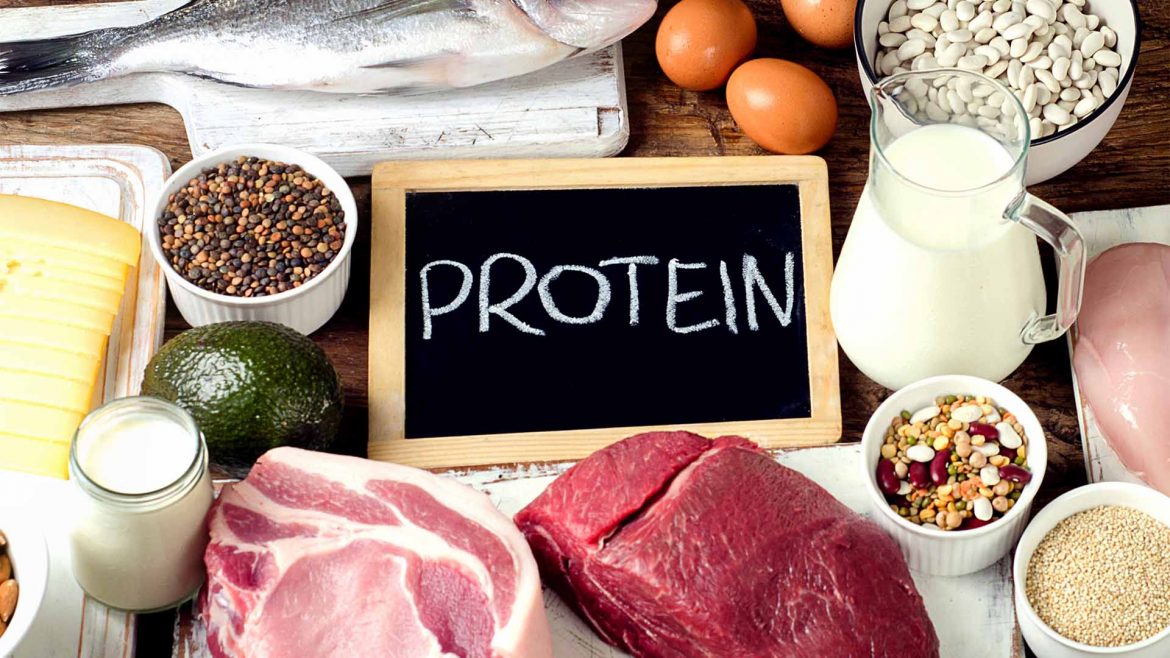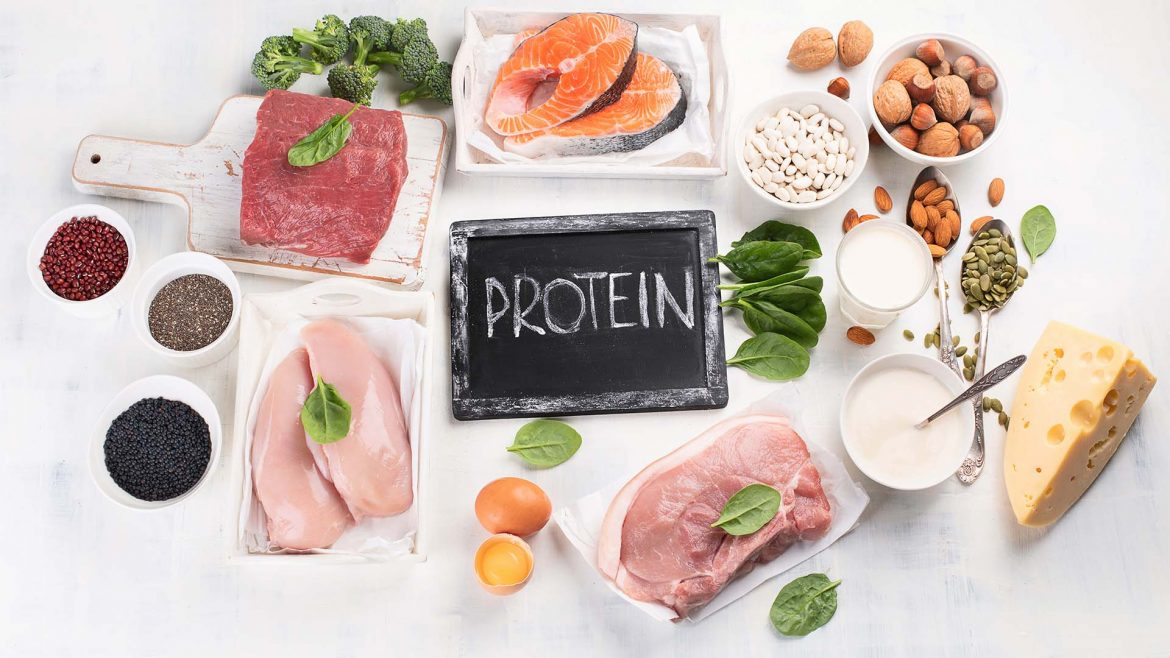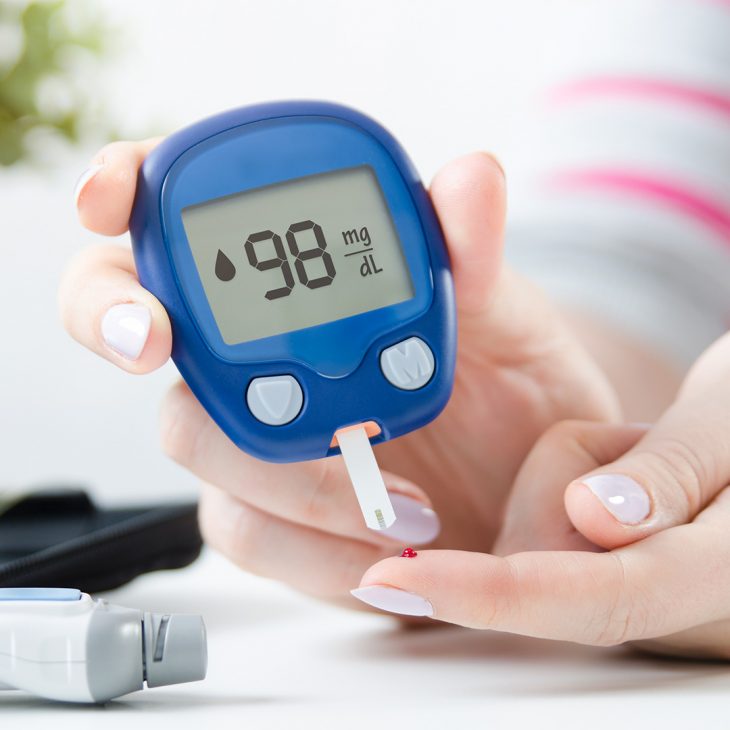
Feeling sluggish? Lacking energy? It might be time to add more protein-rich foods to your diet!
Protein is the building block of life, playing a crucial role in everything from muscle growth to a healthy metabolism. By incorporating a variety of protein-rich foods into your meals, you can experience a surge of energy, improved health, and a body that functions at its best.
This blog will help you understand the basics of protein, exploring its functions, the importance of including it in your diet, and showcasing delicious sources from both animal and plant-based options.
What Is Protein?

Ever wondered why you feel sluggish after skipping breakfast or struggle to recover after a tough workout? The answer might lie in a crucial building block of your body: protein.
Proteins are complex molecules formed by linking smaller units called amino acids. There are 20 different types of amino acids, and the specific order they connect in determines the unique function of each protein. This incredible versatility allows proteins to play a vital role in nearly every bodily process.
But Why Is Protein So Important?
It’s responsible for building and repairing tissues like muscles, skin, and bones. It also acts as a catalyst for chemical reactions (enzymes), helps regulate hormones, and forms antibodies that fight off infections.
In simpler terms, protein is essential for keeping your body’s systems running smoothly. It fuels your metabolism, provides sustained energy, and helps you recover and build muscle after exercise. Whether you’re a growing child, a fitness enthusiast, or simply aiming for overall well-being, getting enough protein is crucial for maintaining a strong and healthy body.
Functions Of Protein In The Body
Some of the essential functions of protein in the body are:
Building And Repairing Tissues
Proteins are essential for helping our body grow, stay healthy, and repair tissue damage. They form the structural framework of muscles, skin, bones, and organs.

Enzyme
Proteins act as catalysts for biochemical reactions in the body. Enzymes are specialised proteins that speed up chemical reactions, facilitating digestion, metabolism, and cellular respiration.

Hormones
Some proteins work as hormones, delivering chemical messages that control various physiological functions. For example, insulin is a protein hormone that helps regulate blood sugar levels, while growth hormone regulates growth and development.

Transportation And Storage
Certain proteins, such as haemoglobin, transport essential molecules like oxygen in the blood. Others serve as storage proteins, storing minerals and nutrients for later use.

Immune Function
Antibodies, proteins produced by the immune system, play a vital role in defending the body against pathogens like bacteria and viruses. They recognise and neutralise foreign invaders, helping to prevent infections.

Different Sources Of Protein
Animal Sources Of Protein
- Meat: Beef, pork, lamb, and poultry (chicken, turkey) are rich sources of protein. They also fight off harmful germs to keep us from getting sick. And they give us essential elements like iron and zinc.
- Fish: Salmon, tuna, trout, and other fatty fish are high in protein and contain healthy omega-3 fatty acids.
- Eggs: Eggs are a complete protein source, containing all the essential amino acids.
- Dairy: Milk, cheese, yoghurt, and other dairy products are protein-rich foods that provide calcium and other vitamins and minerals.
- Seafood: Shrimp, crab, lobster, and other shellfish are low in fat and protein but contain essential nutrients like iodine and selenium.
Plant-Based Sources Of Protein
- Legumes: Beans (like black beans, kidney beans, and chickpeas), lentils, and peas are excellent sources of plant protein. They are also high in fibre, vitamins, and minerals.
- Soy Products: Tofu, tempeh, and edamame are protein-rich and contain all the essential amino acids. These protein-rich foods are versatile ingredients in vegetarian and vegan cooking.
- Nuts and Seeds: Almonds, peanuts, walnuts, chia seeds, and hemp seeds are packed with protein, healthy fats, and vitamins and minerals.
- Whole Grains: Quinoa, brown rice, oats, and barley are rich in complex carbohydrates and contain notable amounts of protein.
- Vegetables: Certain vegetables, such as spinach, broccoli, Brussels sprouts, and peas, contain significant amounts of protein, especially when consumed in larger quantities.
How Much Protein Do You Need?
The amount of protein a person needs can vary based on several factors, including age, sex, weight, activity level, and overall health status. Here are some general guidelines for protein needs by age and activity level:
Adults:
Sedentary individuals should consume about 0.8 grams of protein per kilogram of body weight per day, while people who regularly exercise should consume 1.2 to 2.0 grams.
Older Adults:
Older adults may have slightly higher protein needs to support muscle maintenance and prevent age-related muscle loss (sarcopenia). Aim for about 1.0 to 1.2 grams of protein per kilogram of body weight daily.
Athletes:
Endurance athletes may need 1.2 to 1.4 grams, while strength athletes might require 1.6 to 2.2 grams per kilogram of body weight per day.
Children and Adolescents:
Protein needs are higher during rapid growth and development. Aim for about 1.5 grams of protein per kilogram of body weight per day for infants. For children and adolescents, the general range is between 0.95 and 1.6 grams.
Conclusion
This was all about why protein is important for your body. It does everything from building muscles to keeping your hormones in check.
Adding different sources of protein to your diet keeps your body strong. Remember, protein is essential whether you like exercising or just staying healthy!






